Tom Selleck on the Night He Danced with Princess Diana
"Hearst Magazines and Yahoo may earn commission or revenue on some items through these links."
Publishers have been trying to get Tom Selleck to write his memoir for years—but the timing just wasn't right until 2020.
"I don't have one of those sensational lives [centered] around an event, or where I got in trouble and then had a renaissance. I didn't have those great big hooks, but what I had was a long career. If I could get people involved in the process of that, I thought it would entertain people," Selleck tells Town & Country about why he finally decided to pen his memoir, You Never Know. "That was my goal; I said, if I can't write something that's entertaining, I'm not going to write a memoir. I don't want to do a tell all; I don't want to do a book to get even; I don't want to do a political book. What's left? Hopefully that people will find a rather long journey, that they thought happened overnight, interesting!"
Ahead of the publication of his book, Selleck spoke about his writing process, the state of television in 2024, and what it was really like dancing with Princess Diana at the White House.
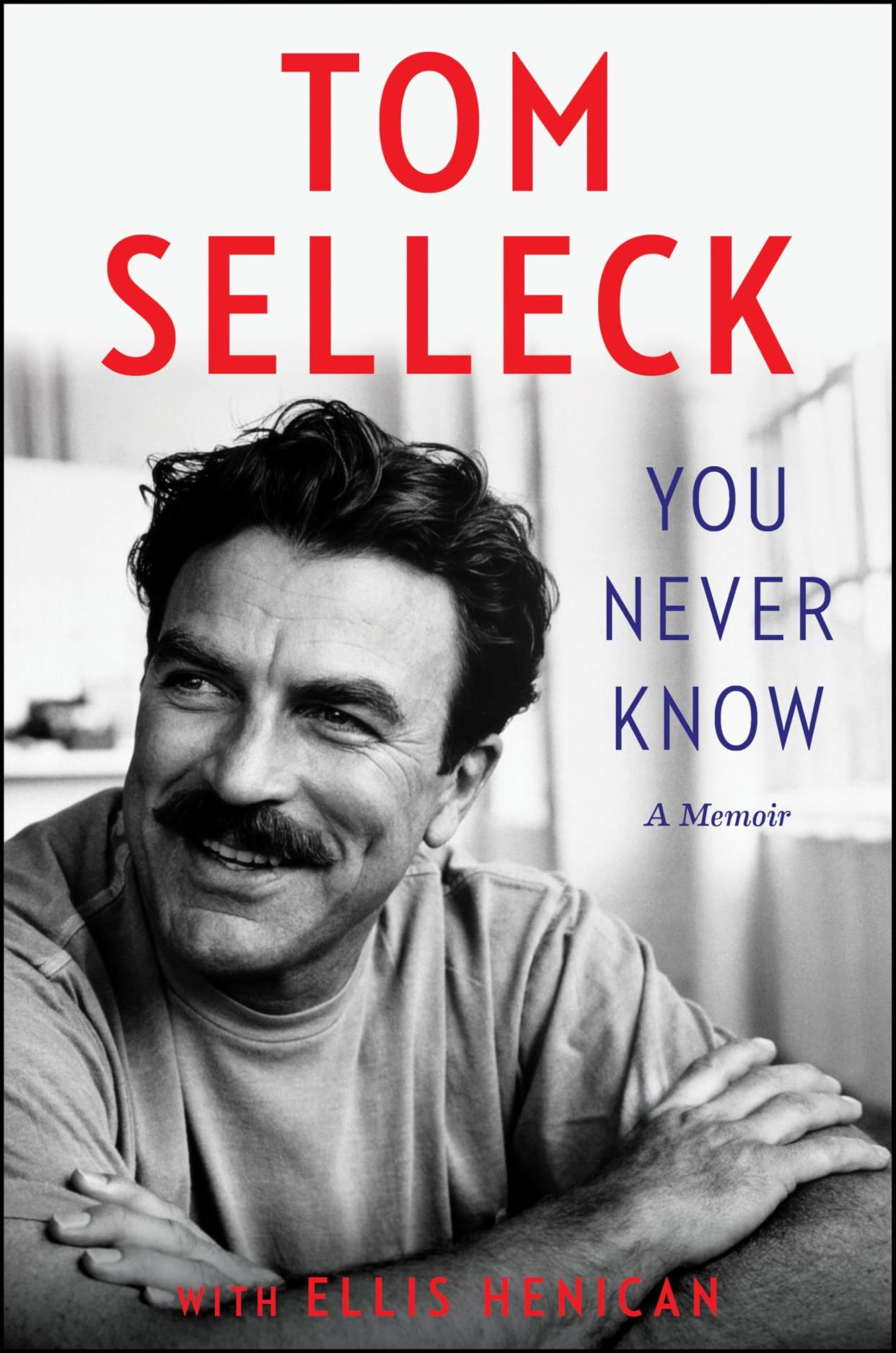
You Never Know: A Memoir
amazon.com
$20.99
In You Never Know, you write, "I once saw a list of my credits somewhere. It had a bunch of shows I had no recollection of." What was it like going down memory lane while working on this?
Some of it was fun. I would write in the afternoon about four o'clock. My office is in a little building next to the house and I would go down to have dinner and I'd sit down next to Jillie, my wife, and I'd read her my day's work. Suddenly, in the weirdest moments, I'd get emotional reading it. It didn't happen when I was writing it, but I think things affect you in funny ways—good things, bad things, everything that happens. It was similar when my daughter Hannah came in. I'd start to read to her and I get emotional. I can't quite explain it. It wasn't easy. It took four years and I am computer illiterate, so I wrote it with my legal pad.
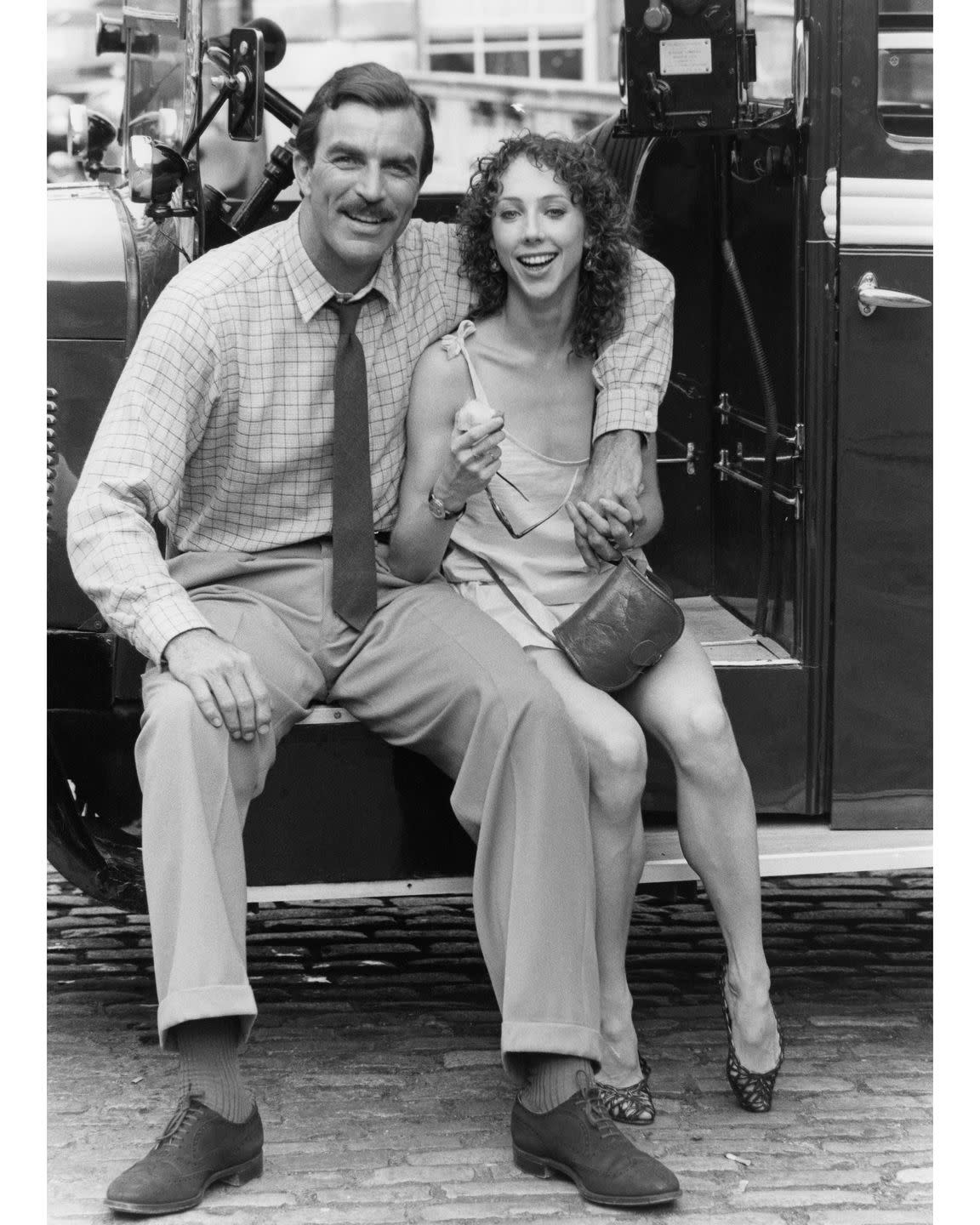
What was it like writing it the memoir entirely by hand?
I've always written that way, and it's the only way I know how to write. I can't think in front of a keyboard. It's like I drive 'em nuts on Blue Bloods because I said, 'No, you have to send me scripts. I need to see the paper.' I don't really register things the same way when I scroll, so it's better for me anyway.
What was it like? It made it more personal. Look, I'm obviously a pretty private person, but I knew if I did a memoir that there were private things I would need to share. So then it was just getting to different events and seeing how much I was willing to share. It was certainly a lot more than I have in the past, and drawing the line when I knew I was getting to a level where I might be exploiting something rather than just telling a private story, especially with other people. Because they aren't in the room saying, 'Oh yeah, that's okay. Write about that.' It affects them very much and I was well aware of that.
Speaking of writing about other people, one of my favorite parts of the memoir was when Princess Diana shows up. Tell me about meeting her.
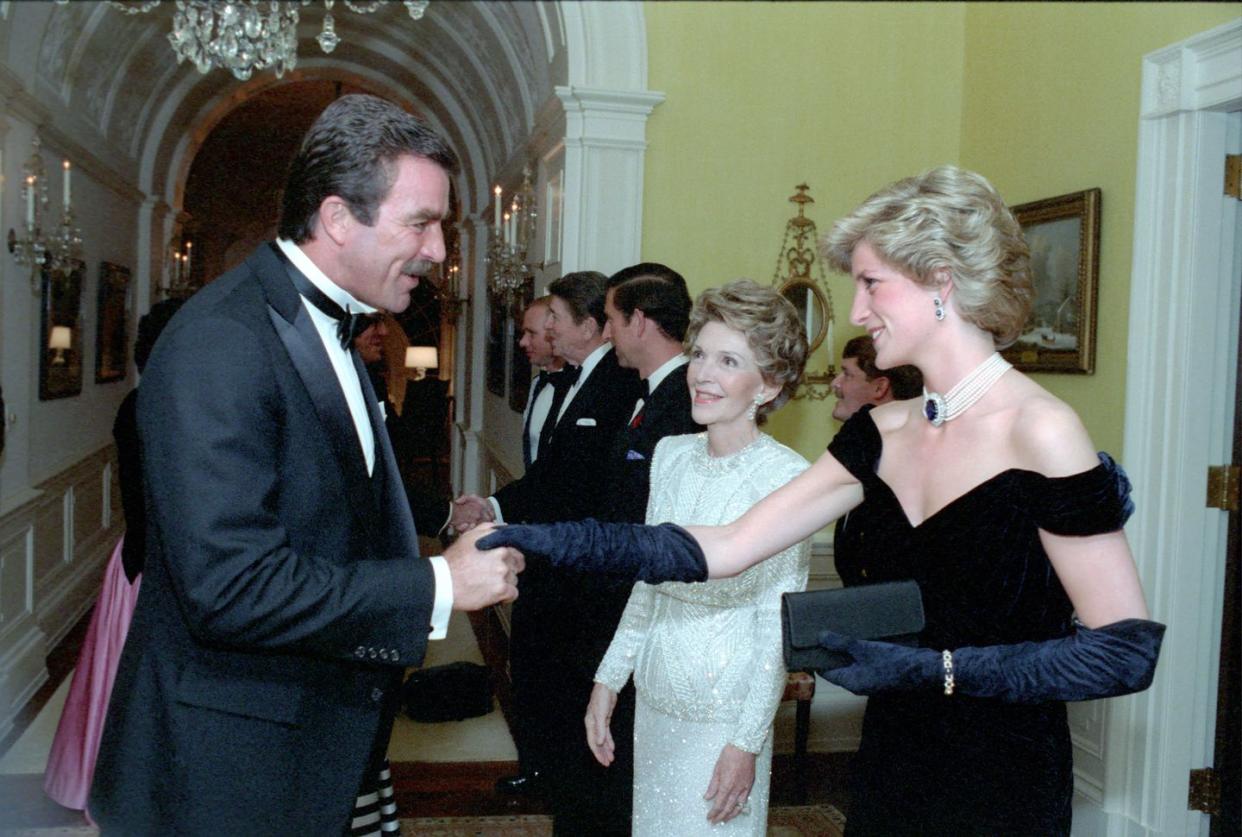
Well, my publicist called. [Remember] I'm in Hawaii, so Washington, D.C.'s pretty far away and we're in production [on Magnum P.I.], but she told me about it. I said, 'Gee, that's very flattering. I don't know how I could get there though.' And she said, 'Look, this is Princess Diana's personal guest list and there's only three actors on it: you, Clint Eastwood, and John Travolta.' That was very flattering. Of course, I'm very nervous, I write about Clint and I hiding in the corner. We figured they were going to ask us to dance.
I do remember dancing with her. I just remember apologizing that I never [learned] to dance. She was gracious. She was also, by the way, having the time of her life. She really seemed to be having a good time. And then in retrospect, that was nice to [see]. The prince danced with my wife, who's a Brit. And he asked her for a second dance, so that was pretty neat for Jillie.
Do you ever get starstruck?
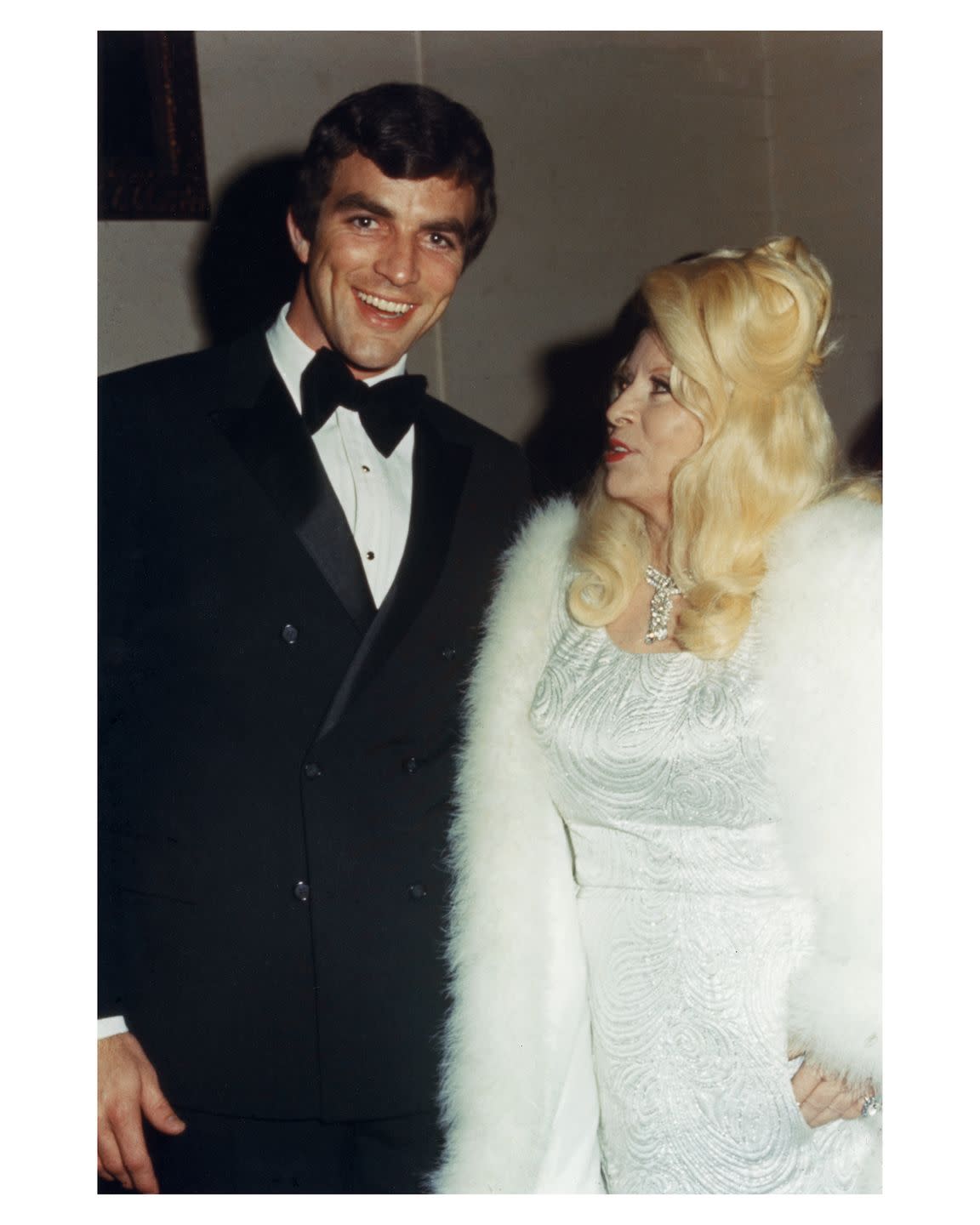
I probably got a little starstruck with Mae West. I didn't get starstruck with [James] Garner, even though I just deeply respected his work, loved his work. Not too often. The really good people—good actors—have a way of cutting through that pretty quick. I've gotten to meet a lot of people and I'm always a little starstruck, but I get over it. I mean, I can carry on a conversation. Dancing with Princess Di was a cut couple notches above that! Oh yeah, I was starstruck.
Do you remember what you talked about when you danced with her?

I apologized. Look, I skipped cotillion. There was called something called cotillion as kids; they taught you how to dance and manners and everything else. My older brother went, and used to come home and say 'I hated it.' So as the younger brother, I managed to skip it, but then all I could do dancing was box step like we did in high school dances, a box step and a dip. And I wasn't about to dip with Princess Di! So I just talked. But she was very gracious and obviously had learned the skill of dealing with people and relaxing. It was certainly memorable.
One of the most surprising anecdotes in You Never Know was that you were almost Indiana Jones, but you had just filmed the Magnum pilot… Do you ever think back and say 'what if'?
It meant a whole lot when Steven Spielberg and George Lucas weren't worried when I said, 'I've done this pilot,' because we thought, well, we've got plenty of cards to play and you can do both. They held out the offer out [for Selleck to play Indiana Jones] for well over a month. The more they wanted me to do it, it seemed like the more CBS didn't want me to do it. Contractually, they could say no. I was able to keep my feet on the ground.
The thing that meant so much to me when it didn't work out, I was able to be somewhat philosophic. Number one, I had Magnum to do, which obviously turned into a great opportunity, but the fact that Steven Spielberg and George Lucas picked me, stayed with me, and wanted me to do that part—they were putting their trust in me. That gave me a certain confidence that nothing could really take away the fact that it didn't work out. I still had that validation from them that I could put in my hip pocket. It meant a whole lot, in that sense.
When I went to see it, everybody said, 'Don't go, you'll get depressed!' But I loved the movie and it was clear from the get-go Harrison Ford had inhabited the role. I was able to watch it as an audience. I had my popcorn. What a great movie.
Thinking about your time on Magnum, you had some pretty legendary guest stars. You write about Frank Sinatra and Carol Burnett, for example. As you thought about your time in the show, what stands out to you the most?
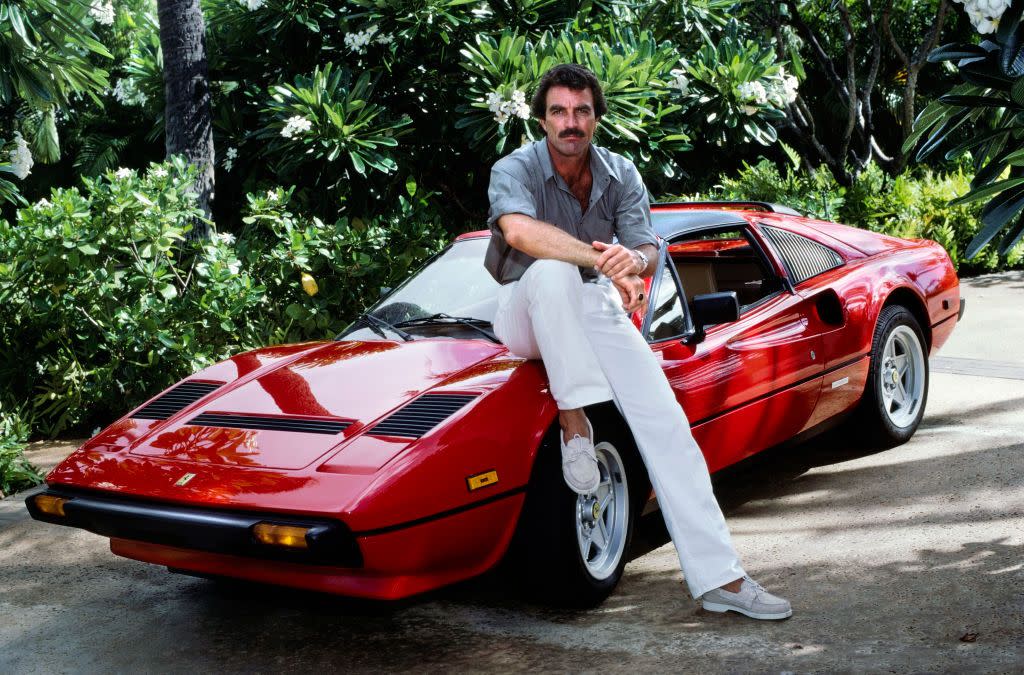
What stands out about my time on Magnum? The whole thing—to have a show and be able to work and live in Hawaii. Our crew was really family, and I'd never worked on a show long enough to ever get that sense of things. Ours was a very tight family and my fellow actors were great. Unlike a lot of shows, where things get a little tense after a few years, we still all liked each other and all that stuff added up to an experience that is irreplaceable.
Sam Elliott appears in the early chapters, when he was also part of the Fox New Talent program. I had no clue you two were such close friends. Do you keep in touch?
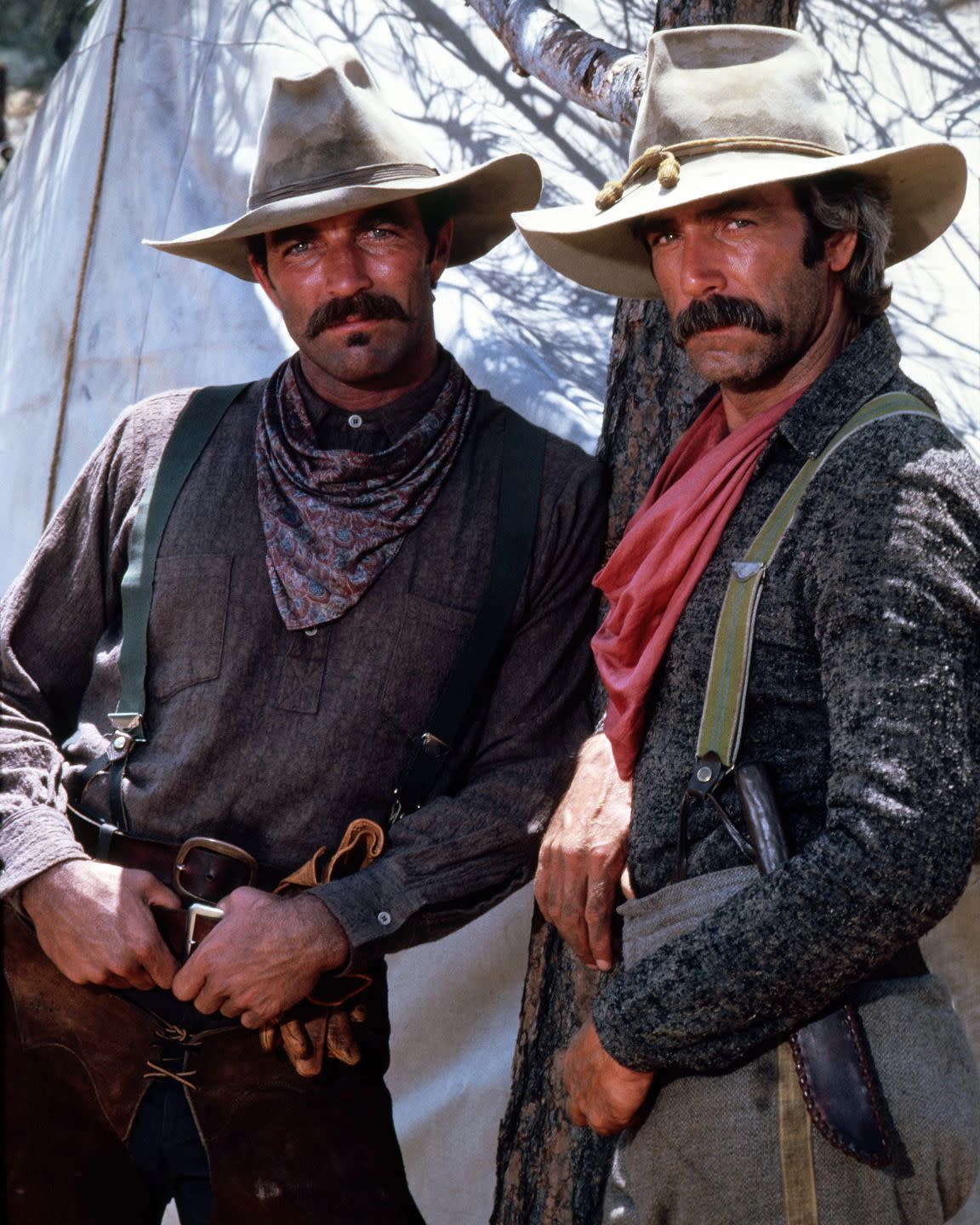
Sam's been a friend forever. This business takes you all over the place and you always think, well, of course you stay in touch. It does not work out that way. He works. I work in New York. Anytime we see each other, it's like it is with most friends: You pick up where you left off. I don't know whether Sam's going to like me talking about him in tights and ballet class at 20th Century Fox, but he's stuck with it.
He recently starred in 1883, part of the new wave of Westerns on television. In your book you write about your love of the genre—would you want to do another?
I hope there's another Western in my future. Certainly whatever happens with Blue Bloods, I'm not going to stop acting. I still hold out hope that CBS will come to their senses. [Ed. Note: CBS did not renew the show for another season; Blue Bloods will end this December after 14 years on the air.] What nobody's talking about is how successful Blue Bloods is; it's the number three highest rated scripted show in all of broadcast. We're winning Friday nights, and doing well on Paramount Plus. The show is not in decline. And I say that stuff not to brag, but everybody who works our show—actors, writers, everybody—deserves that five-star legacy on their resume. CBS isn't talking about how well it's performing. I do, because I think everybody needs to know if the show ends, we'll be ending in rather wild success, as Magnum did.
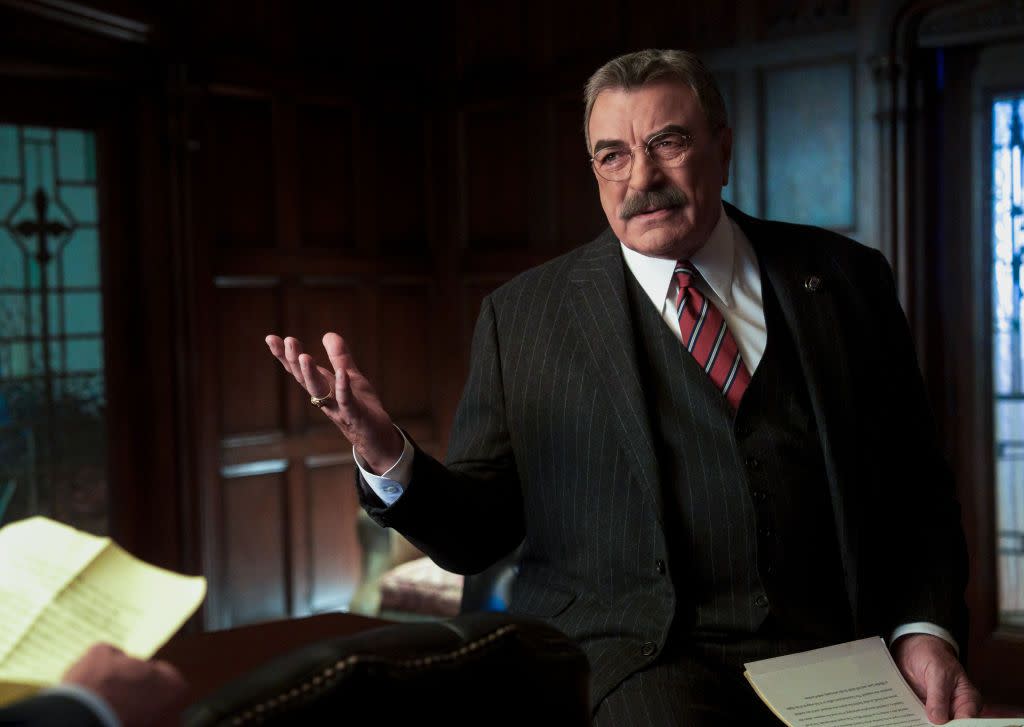
What do you think of the state of television in 2024?
It's constantly in flux. I don't want to sound like an old timer and say it's not as good as it used to be, but... I just don't see the development and belief in projects. They seem to go in trends; if one show succeeds, let's just copy that. There's too much 'Well that show worked, let's do five of those,' rather than figuring out what's next. That takes a certain amount of risk, and I think there's too many business people and not enough creative people in management. But the work is there and I love the work, and that will always stay.
Actors are not widgets—people matter. Audiences tune in, in any kind of series, whether it's a cable or Netflix, they tune in again to see the people, the people they become interested in. I don't think that's ever going to change, but I don't think it's in a very good state at the moment, frankly.
What do you hope readers take away from your memoir?
I hope is it's entertaining. I didn't do a book to unload my conscience or to delve into some deep dark secrets. I did a book to entertain, and I mean that in a broader sense: To make people laugh, maybe cry sometimes, to move people and let them know what it's like to walk in my shoes. Obviously, I say some serious things. I say some things I haven't shared, but the only way I think you can do that is to entertain people. If they're entertained, you earn the right to go into those other areas and that's what I hope it does. I hope it entertains first and foremost.
You Might Also Like
